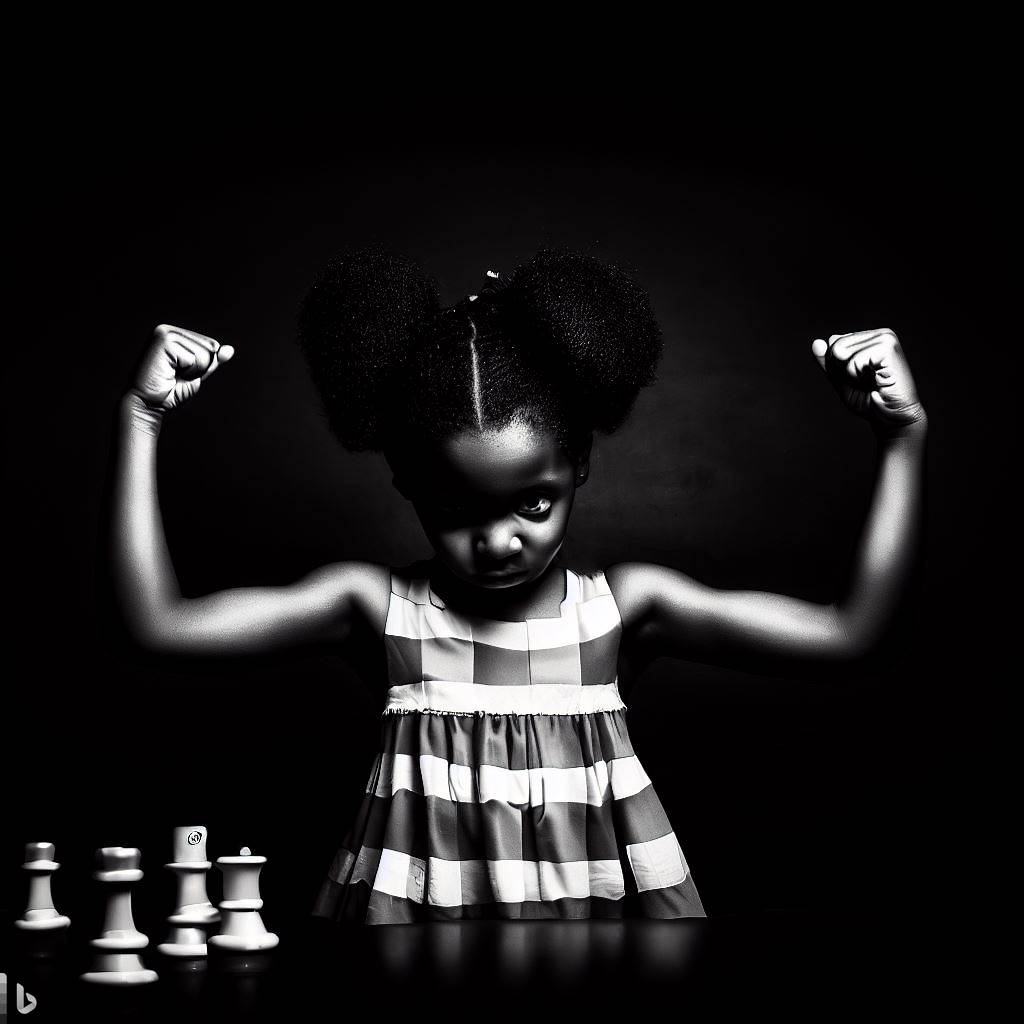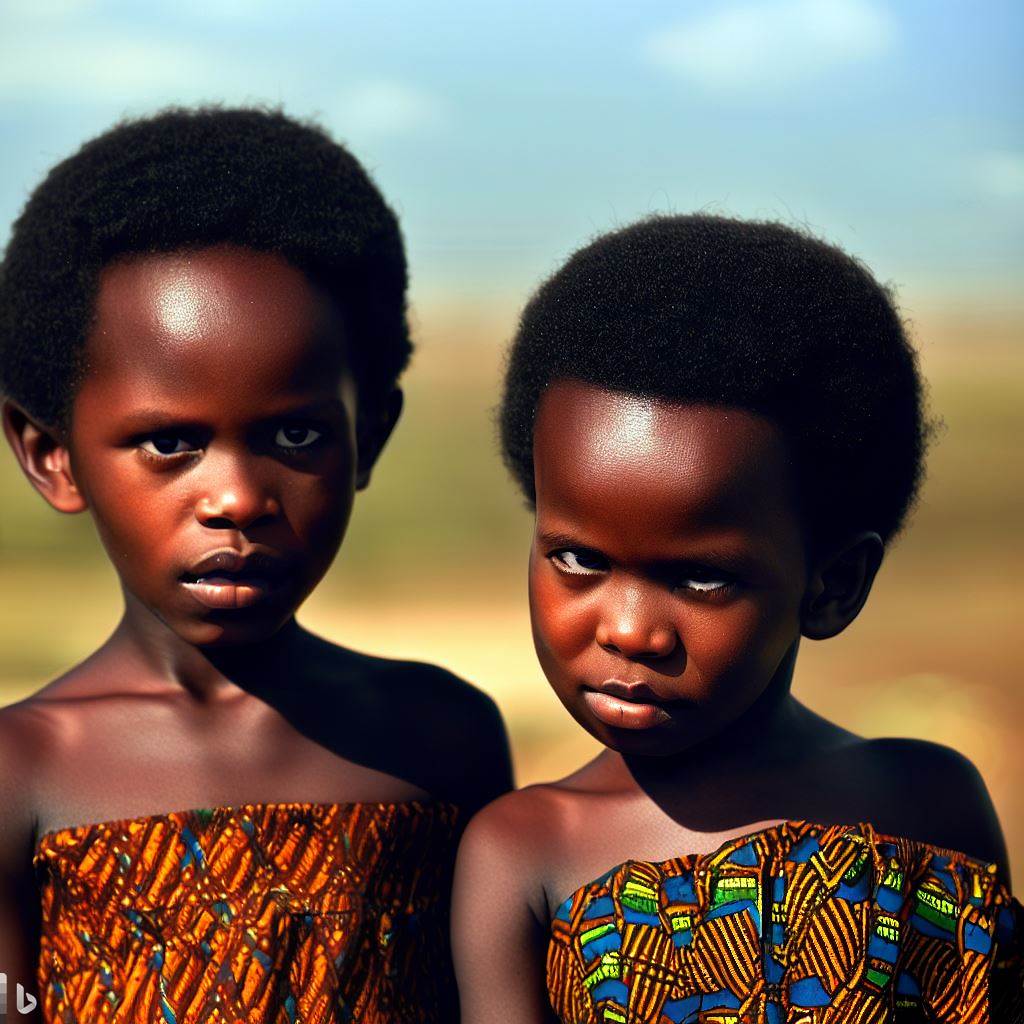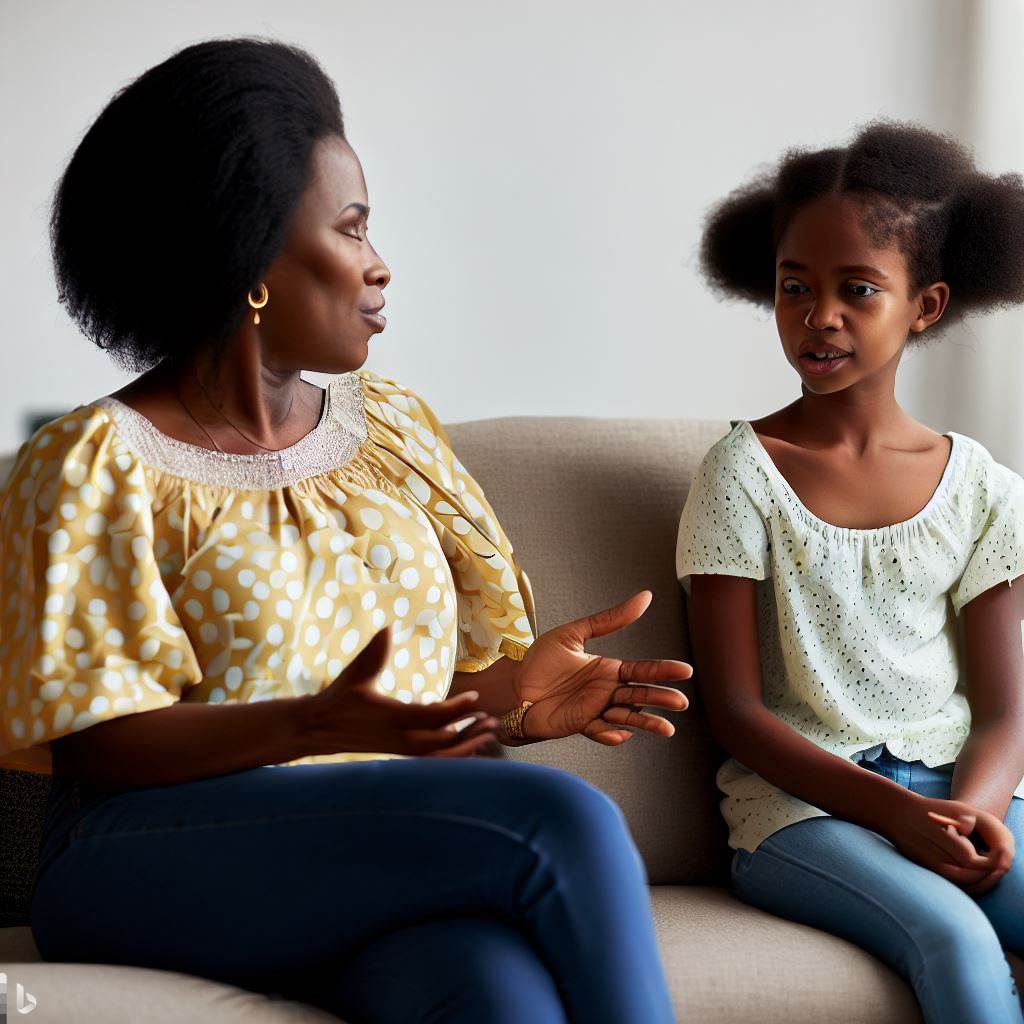Introduction
Raising a girl child in Nigeria is a unique challenge that cannot be overlooked. Parents who embark on this journey face a plethora of obstacles along the way.
From navigating societal expectations to providing equal opportunities, the burden of raising a girl child in Nigeria lies heavily on the shoulders of parents.
Parents in a culture that traditionally limits female children to domestic responsibilities and societal norms must balance traditional values and modern expectations.
Despite these challenges, parents continue to strive to provide their girl children with equal opportunities for education, career, and personal growth.
However, they must navigate a society that may put roadblocks in the way of their success.
The unique challenges of raising a girl child in Nigeria further highlight the need for a cultural shift towards gender equality and empowerment.
By embracing the potential of their girl children and creating a supportive environment, parents can provide valuable tools for their daughters to thrive, and ultimately, help transform society.
Read: Religion and Parenting: Navigating Challenges in Nigeria
Gender biases in Nigeria
Raising a girl child in Nigeria comes with unique challenges due to gender biases.
- Traditional gender roles are deeply ingrained in Nigerian culture and limit girl children’s opportunities.
- Patriarchal beliefs prioritize boys’ education, leaving girl children at a disadvantage.
- The biases affect girl children’s upbringing by limiting their access to education, healthcare, and other resources.
Gender biases are pervasive in Nigerian society, shaping the experiences of boys and girls from birth.
Traditional gender roles dictate that men are the breadwinners while women are responsible for domestic duties.
As a result, society often ingrains in girls the belief that their primary role is to support their husbands and care for their families, a notion reinforced by media, religion, and biased education favoring boys’ education.
Girls are also at risk of early marriage, forced labor, and sexual exploitation, which further limit their opportunities.
Despite these challenges, many parents are breaking from traditional gender roles and advocating for their daughters’ education and empowerment.
Parents are enrolling their daughters in school and exposing them to diverse career options beyond traditional gender roles.
Parenting Made Just for You
Get personalized Parenting Solutions tailored to your child’s needs. Transform your parenting journey with expert guidance in 1-3 days.
Get StartedHowever, gender biases still linger in Nigerian workplaces, where women face discrimination and harassment.
Men tend to dominate leadership positions while women frequently experience pay disparities for equivalent work.
Girl children in Nigeria face unique challenges due to patriarchal beliefs and traditional gender roles.
However, with support from their families and communities, they can overcome these challenges and achieve their full potential.
Read: Nigerian Parents: Tips to Teach Kids About Money
Education
- Access to education for girls in Nigeria is limited.
- Cultural and religious beliefs contribute to the education gap.
- Gender-based violence, early marriage, and poverty also impact access to education.
- Education is essential for the empowerment of girl children.
- It provides opportunities for girls to improve their economic status and decision-making abilities.
- Education also plays a crucial role in reducing child marriage and improving health outcomes for girls.
Factors contributing to the education gap
Several factors, such as cultural and religious beliefs that prioritize boys’ education, contribute to the limited access to education for girls in Nigeria.
Gender-based violence, early marriage, and poverty also contribute to the education gap. These challenges often force parents to prioritize their sons’ education, leaving their daughters at home without access to quality education.
The prioritization of boys’ education in cultural and religious beliefs stems from the expectation that boys will assume the responsibility of financially supporting their families.
As a result, families often prioritize their sons’ education over that of their daughters. Girls are expected to stay at home, cook, clean and prepare for marriage.
Gender-based violence is another barrier to education for girls in Nigeria.
Sexual harassment and other forms of violence often plague girls attending school, hindering their ability to concentrate on studies or even attend school.
This often leads to low academic performance or dropping out of school altogether.
Early marriage is another major challenge that prevents girls from attending school.
Many families marry off their daughters at a young age, before they complete their education. This deprives girls of the opportunity to further their education, reducing their economic prospects and decision-making abilities.
Unveil the Perfect Name that Tells Your Family's Story
Let us help you find a name that embodies your family's values, traditions, and dreams. Our personalized consultation weaves cultural insights to create a name that's uniquely yours.
Get StartedPoverty is also a significant barrier to education for girls in Nigeria.
Families living in poverty often struggle to afford basic necessities, including school fees, uniforms, and books.
This makes it challenging for them to send their children to school, with girls often suffering the most.
Impact of education on the empowerment of girl children
Empowering girl children through education is essential. Education provides girls with the knowledge and skills they need to improve their economic status and decision-making abilities.
It also helps to reduce child marriage, early pregnancies, and other harmful practices that impact girls’ health and well-being.
Education can also help to break the cycle of poverty. Educated girls are more likely to secure higher-paying jobs and contribute to their families’ financial well-being.
They are also more likely to invest in their children’s education, leading to increased opportunities for future generations.
in fact, improving access to education for girls in Nigeria is crucial for their empowerment and overall well-being.
Reducing cultural and religious beliefs that prioritize boys’ education, addressing gender-based violence, ending early marriage and reducing poverty are essential to ensure that girls can access quality education.
Investing in girls’ education is a smart investment that benefits everyone – girls, families, communities, and the nation as a whole.
Read: The Role of Insurance in Safeguarding Family Finances

Female genital mutilation
Female genital mutilation is a practice that involves the partial or total removal of the female genitalia, including the clitoris and labia minora.
This practice has been documented in over 30 countries, including Nigeria, where it is prevalent among certain ethnic groups.
Despite being illegal in Nigeria, female genital mutilation remains widespread, with an estimated 20 million women and girls undergoing the practice in the country.
The consequences of female genital mutilation can be devastating for girls and women who undergo the procedure.
Negative physical and psychological effects on girls who undergo the practice
The physical effects can include excessive bleeding, infection, and even death. Girls may also suffer long-term health consequences, such as chronic pain, urinary problems, and complications during childbirth.
Girls frequently endure intense emotional trauma and psychological distress as a result of the procedure, further exacerbating the physical harms.
High prevalence of female genital mutilation in Nigeria
One of the major challenges of raising a girl child in Nigeria is the prevalence of female genital mutilation in many communities.
Parents may feel pressure to have their daughters undergo this practice in order to maintain cultural traditions or as a way to ensure their marriageability.
Educating parents about the harmful consequences of female genital mutilation is therefore essential to breaking the cycle of this harmful practice.
Fortunately, there are ongoing efforts in Nigeria to educate both parents and communities about the dangers of female genital mutilation.
Non-governmental organizations (NGOs) are working to raise awareness about the practice and provide support for girls and women who have undergone the procedure.
Traditional and religious leaders are also being mobilized to promote the abandonment of female genital mutilation in their communities.
In addition to these efforts, it is important to recognize the agency of girls themselves.
Girls need to be empowered to stand up for their own rights and speak out against harmful practices like female genital mutilation.
This means providing girls with access to education and resources that can help them make informed decisions about their own bodies and futures.
Despite the challenges that girls face in Nigeria, there is reason for hope. With continued education and advocacy, it is possible to end harmful practices like female genital mutilation and create a brighter future for girls in Nigeria and beyond.
By working together, we can ensure that every girl has the opportunity to grow and thrive in a safe and supportive environment.
Read: Budgeting 101: Managing Your Family Finance in Nigeria
Uncover the Details: The Impact of Political Unrest on Parenting in Nigeria
Child marriage
Child marriage is a prevalent issue in Nigeria, and it affects mainly the girl child. Girls are married off to older men, and this issue has brought about some challenges in raising girls in Nigeria.
Here are some unique challenges that come with raising girl children in Nigeria:
Prevalence of child marriage in Nigeria
- In Nigeria, child marriage is still prevalent, and it affects particularly girls from disadvantaged backgrounds.
- According to UNICEF, the prevalence of child marriage in Nigeria is 44%, with some regions having percentages as high as 76%.
- Child marriage denies girls access to education, healthcare, and opportunities that could empower them and help break the poverty cycle.
Impact on the health and wellbeing of girl children
- Child marriage gravely impacts the health and wellbeing of girl children in Nigeria.
- Girls who are married off early are at risk of experiencing complications during pregnancy and childbirth, leading to maternal and infant mortality.
- Child brides are more likely to experience domestic violence, sexual abuse, and social isolation, leading to mental health issues.
Efforts to combat child marriage in Nigeria
- The Nigerian government has made efforts to combat child marriage by outlawing the practice through the Child Rights Act of 2003.
- In 2013, the government also launched the National Strategy to End Child Marriage in Nigeria, aimed at preventing child marriage and addressing its root causes.
- Organizations like Girls Not Brides work to end child marriage in Nigeria by partnering with communities, policymakers, and traditional leaders to create awareness and advocate for girls’ rights.
It is essential to note that ending child marriage in Nigeria requires a concerted effort from various stakeholders.
Families, communities, policymakers, and civil society organizations need to come together to create programmes that empower girls and discourage early marriage.
When girls are allowed to grow up free from harm and granted access to education and opportunities, they can reach their full potential, contribute to the development of their communities, and break the cycle of poverty.
Conclusion
Raising a girl child in Nigeria poses unique challenges, including discrimination, limited education access, early marriage, and domestic violence.
These challenges hinder girls’ physical and mental development, potential, and contribution to the country’s growth.
Addressing these issues requires policy implementation for gender equality, improved education access, and girl child rights protection.
Parents, guardians, religious leaders, and communities should raise awareness and support girl child empowerment.
Individuals and organizations can make a difference by backing initiatives that provide education, healthcare, and essential services.
Investing in the girl child creates a future of equal opportunities and contributes to Nigeria’s development.




